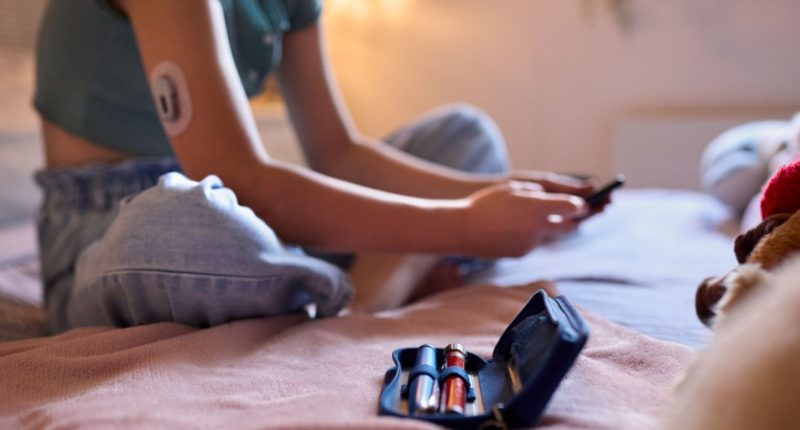The roll-out of hybrid closed loop systems for people with type 1 diabetes will “redefine the lives” of tens of thousands of people, health chiefs have said.
This month, the NHS will start contacting people to offer them an artificial pancreas, a system which sees a glucose sensor under the skin work out how much insulin should be delivered via a pump.
Experts say the technology will help stop very high or low blood glucose levels in people with type 1 diabetes, something that can be fatal.
- Glucose fluctuations affect cognitive function in people with type 1 diabetes
- Runner with type 1 diabetes qualifies for the Olympic Marathon Trials
- T1DE: ex-PM chairs inquiry into Type 1 Diabetes Disordered Eating
In the longer time, the closed loop system can help people gain better control of their overall blood sugar, which reduces the risk of complications like heart disease, eyesight problems and kidney disease.
Professor Partha Kar, NHS national speciality advisor for diabetes, described the roll-out as “great news for everyone with type 1 diabetes”, saying: “This futuristic technology not only improves medical care but also enhances the quality of life for those affected.”
In December, the National Institute of Health and Care Excellence (NICE) gave the NHS the green light to roll out the technology, but it could take five years to get the systems to everyone who could benefit from it.
It is recommended for people with type 1 in certain categories, including children and adolescents, pregnant women, and those with a HbA1c reading of 58 mmol/mol, or 7.5%, or higher.
While the system mimics how a pancreas works, users still need to input information on food intake at mealtimes.
- Guidance on hybrid closed-loop systems for type 1 diabetes published by NICE
- Artificial Pancreas: Hybrid closed-loop system gets NHS green light
- Link between raised insulin levels and pancreatic cancer
Colette Marshall, Diabetes UK chief executive, said: “It’s incredibly exciting to see this technology being rolled out. This really is a landmark moment.”
In the UK, almost 300,000 people have type 1 diabetes, with around 29,000 children diagnosed with the condition.
NHS England diabetes clinical director Dr Clare Hambling said the technology “holds the power to redefine the lives” of people with type 1 diabetes.
She went on to say: “Type 1 diabetes is an easily missed diagnosis, so if you are concerned about symptoms – the four ‘T’s – going to the toilet, passing urine more frequently, with thirst, feeling tired and getting thinner, please come forward for support.”




